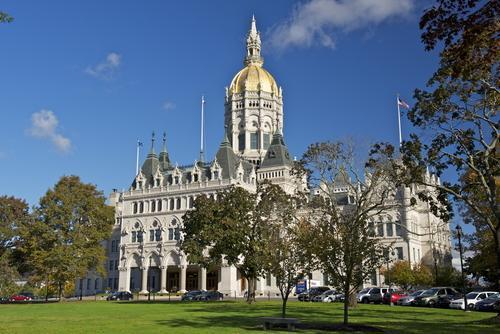Connecticut Lawmakers Seek Special Session for Second Chance Initiative
 One of Governor Dannel Malloy’s pet projects stalled without a vote in the Connecticut House earlier this month after passing with bipartisan support in the state Senate. The Democratic governor has spent much of the last few months advocating for the passage of his “Second Chance Society” initiative aimed at helping non-violent offenders overcome their mistakes and avoid becoming trapped in a cycle of crime and punishment.
One of Governor Dannel Malloy’s pet projects stalled without a vote in the Connecticut House earlier this month after passing with bipartisan support in the state Senate. The Democratic governor has spent much of the last few months advocating for the passage of his “Second Chance Society” initiative aimed at helping non-violent offenders overcome their mistakes and avoid becoming trapped in a cycle of crime and punishment.
The measure was on the verge of being approved, according to several news outlets, when a filibuster by the Black and Puerto Rican Caucuses and other procedural issues led to the legislative session ending before a vote was taken. The House, however, did approve a resolution calling for a special session to address the bill, along with several others awaiting consideration.
Second Chance Society
The legislation proposed by the governor is an attempt at significant reform in the state’s criminal justice system. Much of its focus is on reducing the disproportionate effect of current criminal and drug possession laws on minority citizens and communities.
Drug-Free School Zones
One of the major provisions in the proposed law would remove the mandatory two-year prison sentence and felony prosecution for drug possession near schools and child-care centers. The current law requires such penalties to be enforced within 1,500 feet of an educational facility which, in effect, encompasses most of the land area in Connecticut cities.
Proponents of the new law observe that many of these urban areas are inhabited by predominantly minority communities, meaning that drug possession penalties, in practice, are substantially greater for a particular segment of the population. While the new law would maintain drug-free school zones, mandatory felony status, and the two-year minimum prison term would be eliminated.
Misdemeanor Possession
The other major impact of the Second Chance Society initiative would be a significant change to minor drug possession offenses. Possession of small amounts of drugs would be treated as a misdemeanor with a focus on drug counseling and rehabilitation rather than criminal penalties. A second conviction for possession would require an evaluation of the offender for drug dependency. Again, the emphasis would remain on treatment and recovery, and less so on punishment.
Second Chance to Get a Second Chance
Critics of the legislation believe that certain penalties in the proposed measure should be made stronger. In addition, there is also concern that some of the bill’s language may have unintended consequences, including some related to Second Amendment gun rights. The House, however, has pledged to take another look at the proposal during an approved special session. Lawmakers expect a vote on the measure in the very near future.
If you have been charged with any type of drug-related crime, contact an experienced criminal defense attorney in Hartford. At the Woolf & Ross Law Firm, LLC, we have helped hundreds of clients facing similar situations minimize the negative impact to their future. Contact our office today to schedule an initial consultation and put our knowledge and skills to work for you.






